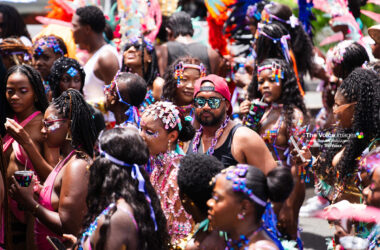General elections are due this year and already the machinery that sets this particular event going is already churning. The battle lines between political parties have already been drawn, predictions are continually being made, rivalling politicians are now flexing their political muscles, while their lackeys hurl all manner of rhetoric at each other, solely intended to hurt the chances of their respective rival at the polls.
In this mix are journalists, the people who must wade through the battle lines, analyse the predictions and the rhetoric spewed by the politicians, and present to the voting public not just an accurate account of what is said and done at election campaigns, but also clear and accurate context of the words and actions of the politicians.
This is not as simple as it reads. Journalists are faced with a tall order, one in which the entire country is looking up to them to execute fearlessly and impartially. Sadly, like in everything and everywhere, there are good and bad, both existing side by side and sometimes not easily discernable. Journalism too, has its good and bad apples (practitioners). There are media practitioners, who sell themselves as journalists, but will do whatever it takes to skewer the words of one politician in favour of another in an effort to seek material gain for themselves.
Then there are the faux journalists, those with the academic qualifications coupled with experience, who will use the tools of truth, transparency and accuracy (basic tools of the trade) in devious ways to mislead the public so as to present their favoured politician in a favourable light.
Winning an election is one thing, it is the aftermath that is most important as noted in the publication ‘An Election Handbook for Caribbean Journalists’.
The handbook, in an attempt to enhance the quality of media reportage stated that, “As imperfect as they often may be, elections constitute one of the more important features of the democratic process. If elections are free and transparent, and citizens have confidence in their execution, the results of the exercise are widely-held to be representative of the will of the electorate. A government installed under such conditions will more likely than not enjoy the support and confidence needed to promote social cohesion and peace.”
The handbook went on further to state that “if, however, elections are not conducted in a manner that provides for the free exchange of ideas and solutions among candidates, their parties and the population, and if the process of voting and declaring results is not transparent, such elections will impact negatively on the ability of the eventual victor to govern under conditions that are accepted.”
The handbook in essence is making the case for good election reporting, meaning good journalism, one that is clothed in the basic tenets of accuracy, impartiality and sound judgment, wrapping up its case by stating that these basic tenets of journalism “are important assets within the framework of democratic elections.”
In other words, if we want democracy to work then there must be good election reporting, which simply implies that we need good journalism, or journalists that report accurately and fairly on election campaigns.
The handbook puts it this way, “Journalists are consequently expected to report accurately and fairly on election campaigns, to inform the public about the electoral process and through vigilant oversight, to guard against abuses of power by the incumbent administration, and to assess the validity of complaints.”
The handbook also noted that, “Election campaign coverage is seen to fall short when journalists and media enterprises fail to resist direct censorship by the authorities, or succumb to manipulation by officials, by partisan forces and private interests. Self-censorship, arising from fear of recrimination and threats, qualifies as further evidence of media failure.”
With the political climate in Saint Lucia already heating up, angling itself for a full-blown political storm as general elections draws near, it is imperative for each journalist to understand his/her obligations in his/her coverage of this rapidly approaching storm.
We call on media organizations to get a copy of “An Election Handbook For Caribbean Journalists” and for Journalists to arm themselves with the basic tenets of good journalism as this is the only way they would be able to weather the approaching storm and come out unscathed on the other end, and to prevent democracy and the electoral process from taking a beating. After all, it is better for us to gain confidence in both rather than to lose confidence.
On the flip side, and paraphrasing Barack Obama in his book ‘A Promised Land’ it would be good for the country if contesting politicians cultivate an abiding faith in the laws of Saint Lucia and understand that through reasoned argument and fidelity to the ideals and institutions of our democracy, Saint Lucia could be made better.













